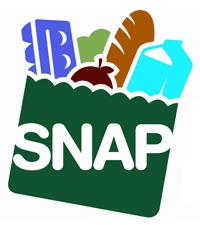The Supplemental Nutrition Assistance Program (SNAP), also referred to as the Food Stamps Program, is targeted for significant and potentially devastating cuts by the U.S. House of Representatives.
The National Association of Social Workers will join other advocacy and professional organizations to prevent such budget reductions, which would harm already vulnerable populations that struggling to afford nutritious food, including children and the elderly.
SNAP is a United States Department of Agriculture program funded through the Agriculture Reform, Food and Jobs Act of 2013, or Farm Bill. This action is widely viewed as one driven by politics and not a legitimate effort to reduce government spending.
The House of Representatives’ nutrition bill authorizes a $40 billion dollar cut to SNAP. A reduction of that magnitude would significantly reduce eligibility for low-income families to receive nutritional support from food stamps.
Also, because of the expiration a temporary provision of the 2009 Recovery Act, the proposed cuts will be on top of an already planned across-the-board benefit reduction for all SNAP participants (including 22 million children) set to begin on November 1.
According to budget experts, a $40 billion reduction in the $950 billion Farm Bill will have very limited spending impact relative to the size of the overall budget.
The timing of such a large reduction in SNAP could not be worse. There has been a marked increase in the number of individuals and families slipping into poverty in recent years.
By the Department of Agriculture’s own estimate, approximately 17.6 million households, with 49 million people, lacked access to adequate food at some point in 2012 because they didn’t have enough money or other resources to meet their basic food needs. These figures indicate widespread “food insecurity” suggesting a slow recovery from the recent deep recession for low-income Americans.
The Center for Budget and Policy Priorities’ food insecurity analysis also concludes that:
- About 7 million of the 17.6 million food insecure households in 2012 had very low food security, with household members skipping meals or taking other steps to reduce what they ate because they lacked resources.
- Some 21.6 percent of children lived in food insecure households, with about half of them experiencing food insecurity themselves.
- The share of households with seniors who are food insecure appears to be trending upward, rising from 7.5 percent in 2009 to 8.8 percent in 2012.)
Further evidence of the unfortunate timing of the House’s proposed cuts in SNAP can be found in a September 2013 Gallup Poll. According to that poll 20 percent of American adults polled in August said that at times in the past year they had not had enough money to buy food for themselves or their family.
Adding to the challenges confronting the indigent is the push by several lawmakers to encourage states to make drug-testing a condition for eligibility for SNAP. An earlier version of the Farm Bill that was defeated in June that contained a drug testing requirement.
Had the June vote resulted in the passage of the Farm Bill, the drug testing provision would have become law. Many are concerned that if the current bill goes to conference for reconciliation between the Senate and House version, the drug-testing language will be reinserted into the final legislation.
Requiring drug testing any individual in a household applying for food stamps is overly punitive to the entire household and is based dubious assumptions that a significant percentage of SNAP recipients are drug abusers. It should be remembered that most SNAP participants were children or elderly. Nearly half 47 percent were under age 18 and another 8 percent were age 60 or older.
NASW is advocating against any cuts in SNAP. NASW strongly believes that SNAP is a critically important safety-net program that should not be tampered with during a time when the number of families entering into poverty is rising – not falling.
NASW further opposes the use of drug-testing as a condition of eligibility for SNAP. We feel the harm of such drug-testing far outweighs any potential fraud or abuse of the program.
To learn what you can do to prevent the budget cuts contact Melvin Wilson, LCSW, MBA, manager of NASW’s Department of Social Justice and Human Rights, at mwilson@naswdc.org. For more information about the Agriculture Reform, Food and Jobs Act of 2013 and related discussions about SNAP, please access the following resources:
Center on Budget and Policy Priorities Report on Cuts in SNAP.
Food Research and Action Center Op-Ed in The Hill.





